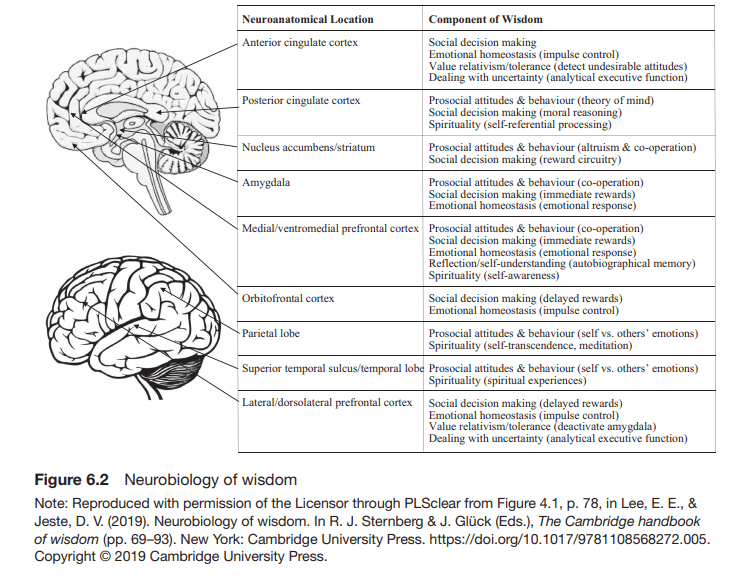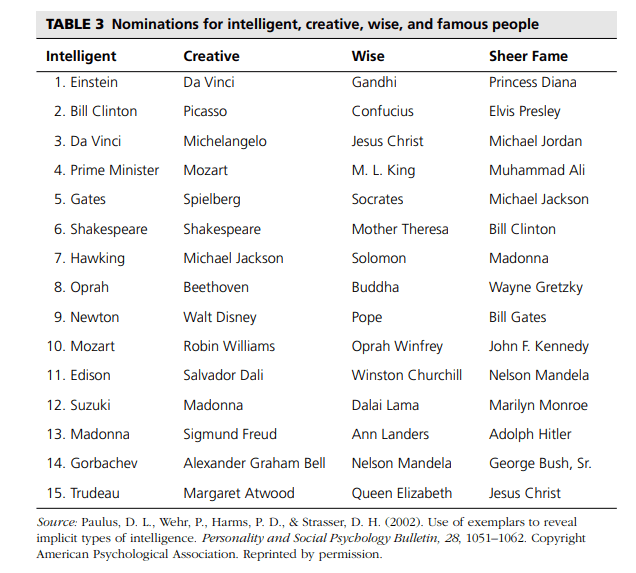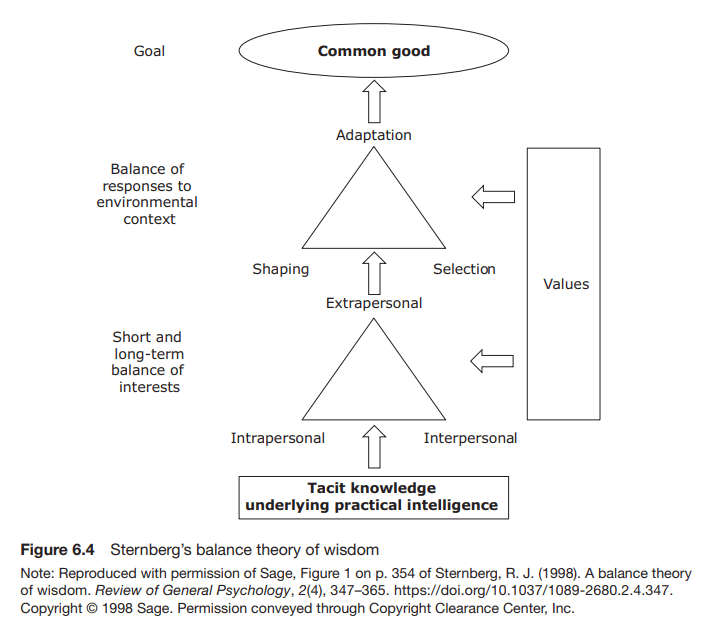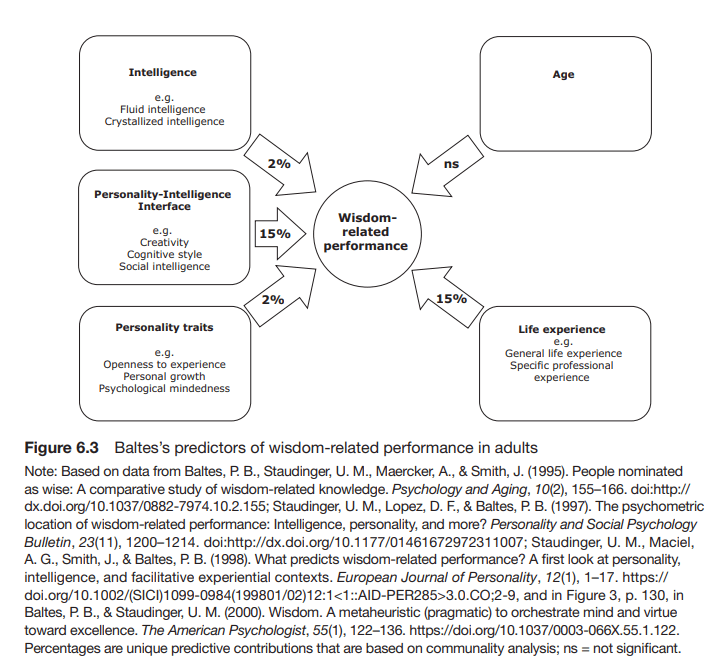What is Wisdom?
Wisdom is a complex and multifaceted concept that has fascinated philosophers, psychologists, and cultural commentators throughout history. It encompasses more than just knowledge or intelligence; it involves a deep understanding of life, human nature, and the ethical implications of one’s actions.
To define it more thoroughly, researchers have identified several key characteristics that encapsulate its essence.
Sternberg’s Six Groupings of Attributes
Sternberg (1985) identified six essential attributes that characterize a wise person-
- Reasoning Ability- They possess exceptional logical reasoning and problem-solving skills, enabling them to integrate diverse pieces of knowledge creatively. This ability allows them to analyze complex situations and devise thoughtful solutions.
- Sagacity- This attribute reflects a deep understanding of human nature, encompassing empathy, fairness, and good listening skills. Wise individuals value the knowledge and advice of others, recognizing the importance of perspective.
- Learning from Ideas and the Environment- It involves a commitment to lifelong learning, where wise individuals are open to ideas and learn from their experiences and the experiences of others.
- Judgment- They demonstrate sound judgment, considering long-term outcomes and potential consequences. They approach decision-making with caution, reflecting on their choices before acting.
- Expeditious Use of Information- This attribute involves retaining valuable lessons from experiences, both positive and negative. Wise individuals adapt their thinking and behavior based on new information and insights.
- Perspicacity- They possess a keen insight that allows them to discern underlying truths and make sense of complex situations. They have an intuitive understanding of people and circumstances.

Neurobiology of Wisdom
Baltes’ Seven Properties of Wisdom
Paul Baltes (1993) contributed to the understanding of wisdom through his Berlin Wisdom Model, which outlines seven properties-
- Addressing Important Life Questions- They engages with profound questions about existence, morality, and the human condition.
- Knowledge of Knowledge Limits- They recognize the limitations of their knowledge and the uncertainties of life. They are aware of what cannot be definitively known.
- Superior Knowledge and Judgment- It encompasses a high level of understanding and exceptional judgment, enabling wise individuals to provide meaningful advice.
- Scope, Depth, and Balance- It involves a comprehensive knowledge base that is deep and balanced, integrating various perspectives.
- Synergy of Mind and Character- This property highlights the interplay between knowledge and virtues, suggesting that true wisdom involves ethical considerations.
- Knowledge for Well-Being- It is applied for the greater good, focusing on the well-being of oneself and others.
- Recognizability of Wisdom- While it is easily recognizable in action, defining and achieving it remains a complex challenge.
Read More- Intelligence
Distinction Between Wisdom and Other Traits
The differences between wisdom, intelligence, creativity, and fame are further highlighted in the research findings. The study found that the overlap between nominees for these categories was minimal. For example, only Oprah Winfrey appeared on both the wisdom and intelligence lists. Furthermore, there was no overlap between it and creativity, indicating that these qualities are perceived as distinct.

Wisdom and Other Attributes
- Wisdom involves ethical judgment and the application of knowledge to navigate life’s complexities.
- Intelligence is often defined by cognitive abilities and problem-solving skills, typically measured through standardized tests.
- Creativity encompasses innovative thinking and the ability to generate original ideas, often celebrated in artistic and scientific fields.
- Fame, while sometimes associated with influence or success, does not inherently convey it.
This distinction underscores that wisdom is not merely a function of intellect or achievement; it is rooted in a nuanced understanding of human experience and morality.
Read More- Creativity
Theories of Wisdom
Among the most influential theories are-
1. Balance Theory
Robert Sternberg’s Balance Theory of Wisdom posits that it involves the practical intelligence necessary to make judicious decisions when facing difficult and complex life situations (Sternberg, 1990). Central to this theory is the concept of tacit knowledge—the understanding acquired through life experiences rather than formal education. This type of knowledge encompasses the “how” of life, equipping individuals with the skills to pursue and achieve valued goals effectively.

Balance Theory
Sternberg argues that it is not simply an accumulation of facts or knowledge but rather the application of that knowledge in ways that promote the common good. He emphasizes that wise actions should prioritize collective interests over self-serving motives.
This necessitates a delicate balancing act among three types of interests
- Intrapersonal Interests- These pertain to one’s own needs and desires, focusing on personal fulfillment and well-being.
- Interpersonal Interests- These include the needs and interests of significant others, such as family members, friends, or colleagues.
- Extrapersonal Interests- These relate to the broader community, society, environment, or spiritual beliefs, encompassing the common good.
To arrive at wise solutions, individuals must consider how to balance these interests with three potential courses of action
- Adaptation- Changing oneself to meet the needs of others.
- Environmental Change- Altering the circumstances or influencing others to achieve a desired outcome.
- Selection of New Environments- Opting for a completely different context that better aligns with one’s needs and values.
Sternberg illustrates this balance theory through the example of individuals facing the challenges of being part of the “sandwich generation,” where they are responsible for both their aging parents and their children. The dilemma involves balancing personal, familial, and societal responsibilities, making it clear that it requires nuanced decision-making and an understanding of the broader implications of one’s choices.
2. Berlin Wisdom Model
In contrast, the Berlin Wisdom Model, developed by Paul Baltes and his team at the Max Planck Institute, approaches wisdom from an empirical and theoretical perspective, focusing on expert knowledge regarding the fundamental pragmatics of life (Baltes, 1997; Baltes & Smith, 1990; Baltes & Staudinger, 2000). The model defines wisdom through five specific criteria-
- Factual Knowledge- This involves extensive understanding of human nature and social dynamics. It encompasses the fundamental principles that govern relationships and societal structures.
- Procedural Knowledge- This refers to knowing effective strategies for addressing life’s challenges. It includes problem-solving approaches, conflict resolution techniques, and methods for achieving personal goals.
- Lifespan Contextualism- it acknowledges that life circumstances and roles evolve over time. This criterion emphasizes the importance of understanding different social environments and adapting to the changes that accompany various life stages.
- Relativism of Values- Wise individuals recognize that values and priorities vary across cultures and individuals. This awareness allows them to navigate moral complexities with sensitivity and consideration for diverse perspectives.
- Awareness and Management of Uncertainty- it involves acknowledging the limits of one’s knowledge and understanding the inherent uncertainties of life. Wise individuals can cope with ambiguity and navigate the unknown with resilience.
The Berlin Wisdom Model assesses wisdom through hypothetical life dilemmas, presenting participants with challenging scenarios and evaluating their responses against the established criteria. For instance, participants may be asked to consider how to respond to a friend contemplating suicide or to reflect on unfulfilled life ambitions. Their answers are judged based on how well they meet the five wisdom criteria.
Wisdom, Age, and Expertise
A common belief is that wisdom increases with age due to the accumulation of life experiences. While research supports the idea that wisdom develops significantly during adolescence and young adulthood, it suggests that it stabilizes in middle age and may decline after age 75 (Baltes & Staudinger, 2000). This finding indicates that mere aging does not guarantee increased it; rather, it is the quality of experiences and the ability to reflect on them that fosters wisdom.

Factors Influencing Wisdom
Another intriguing question is whether experts, such as clinical psychologists, are inherently wiser than their non-expert counterparts. Studies indicate that clinical psychologists often score higher on wisdom assessments compared to non-psychologists, likely due to their training in understanding human behavior and managing life dilemmas. However, this does not imply that all psychologists are wise or that wisdom is exclusive to this profession. Wisdom may also be found among individuals recognized as wise by their peers, indicating that wisdom can transcend formal expertise.
Wisdom and Happiness
The relationship between wisdom and happiness is nuanced. While one might assume that increased wisdom correlates with greater happiness, this is not necessarily the case. Wisdom often involves a deep understanding of life’s complexities, including pain and suffering, which may contribute to emotional challenges. Research suggests that they may experience lower frequencies of both negative and positive emotions, instead finding fulfillment in emotions that promote active engagement and learning (Kunzmann & Baltes, 2003). This indicates that wise people prioritize emotional regulation and meaningful involvement over mere pleasure-seeking.
Conclusion
It is not a static trait but a dynamic process that evolves through experiences, reflection, and a commitment to the common good. As individuals navigate the complexities of life, the pursuit of wisdom remains an invaluable endeavor, shaping not only personal fulfillment but also contributing to the well-being of society as a whole.
References
Baumgardner, S. R., & Crothers, M. K. (2009). Positive psychology. Pearson Prentice Hall.
Carr, A. (2011). Positive psychology: The science of happiness and human strengths (2nd ed.). Routledge.
Niwlikar, B. A. (2024, December 12). Wisdom and 2 Important Theories of Wisdom. Careershodh. https://www.careershodh.com/wisdom/
